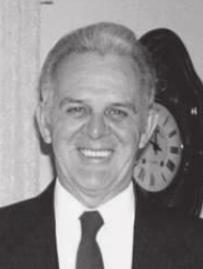DEAR DR. ROACH: I am 69 years old and have multiple sclerosis, for which I have been taking Aubagio (teriflunomide) for five months. My monthly liver tests have been negative so far. I am concerned about the long-term effects of this drug on my liver. Can the drug damage the liver permanently over time? Also, what are the symptoms of a damaged liver? What is the liver’s function? Thank you for your help. -- C.D.S. ANSWER: Multiple sclerosis is a disease in which the coating of nerve cells, called myelin, is destroyed by the body’s immune and inflammatory systems. Symptoms of this nerve damage include numbness, weakness and vision changes. Most people with MS have symptoms that relapse and then remit. Teriflunomide blocks some of the actions of T lymphocytes, and this has been shown to reduce the relapse rate by about 30% and decrease the progression of disability. As you point out, teriflunomide can adversely affect the liver. While 10% to 13% of people will show abnormal liver enzymes on a blood test, damage to the liver is uncommon. Most cases occur in the first six months after beginning treatment, so blood testing is recommended to evaluate any adverse effects on the liver. Initially there are no symptoms, which is why blood testing is recommended. By the time symptoms have developed, there is usually extensive liver damage. Most people will not experience any ill effects of the liver, which is good, because the liver has countless functions related to making proteins that regulate most body functions, as well as detoxifying drugs and metabolic byproducts. Stopping teriflunomine caused improvement in the reported cases of liver toxicity. DEAR DR. ROACH: I have had several incidents over the past year or two of nocturnal colon incontinence. Can you please explain why this happens and what I can do about it? -- T.O.H. ANSWER: Losing control of one’s bowels is a common problem, but one that patients are sometimes reluctant to discuss, even with their doctors. Fecal incontinence requires a thorough evaluation to determine the possible cause. There are many, often related to underlying diseases. In some cases, it is changes in physiology of the rectum due to aging, often accompanied by additional issues, such as trauma during childbirth. Probably the most important factor in patients I see with fecal incontinence is loose or watery stools. It is much more difficult for the bowel when stool is liquid compared with when it’s solid, so often the first treatment is preventing or treating diarrhea. This includes a review of foods likely to cause diarrhea. Excess caffeine, fructose and lactose should be avoided, as they are common causes. A fiber supplement can be extremely helpful in people who have diarrhea and incontinence due to loose stools. Antidiarrheal medicine like loperamide (Imodium) may also be helpful. Conversely, stool impaction may lead to incontinence, which is why a thorough history and exam is so critical. Evaluation by a gastroenterologist, including more sophisticated testing, is appropriate if a primary care doctor’s treatment plan isn’t effective.









